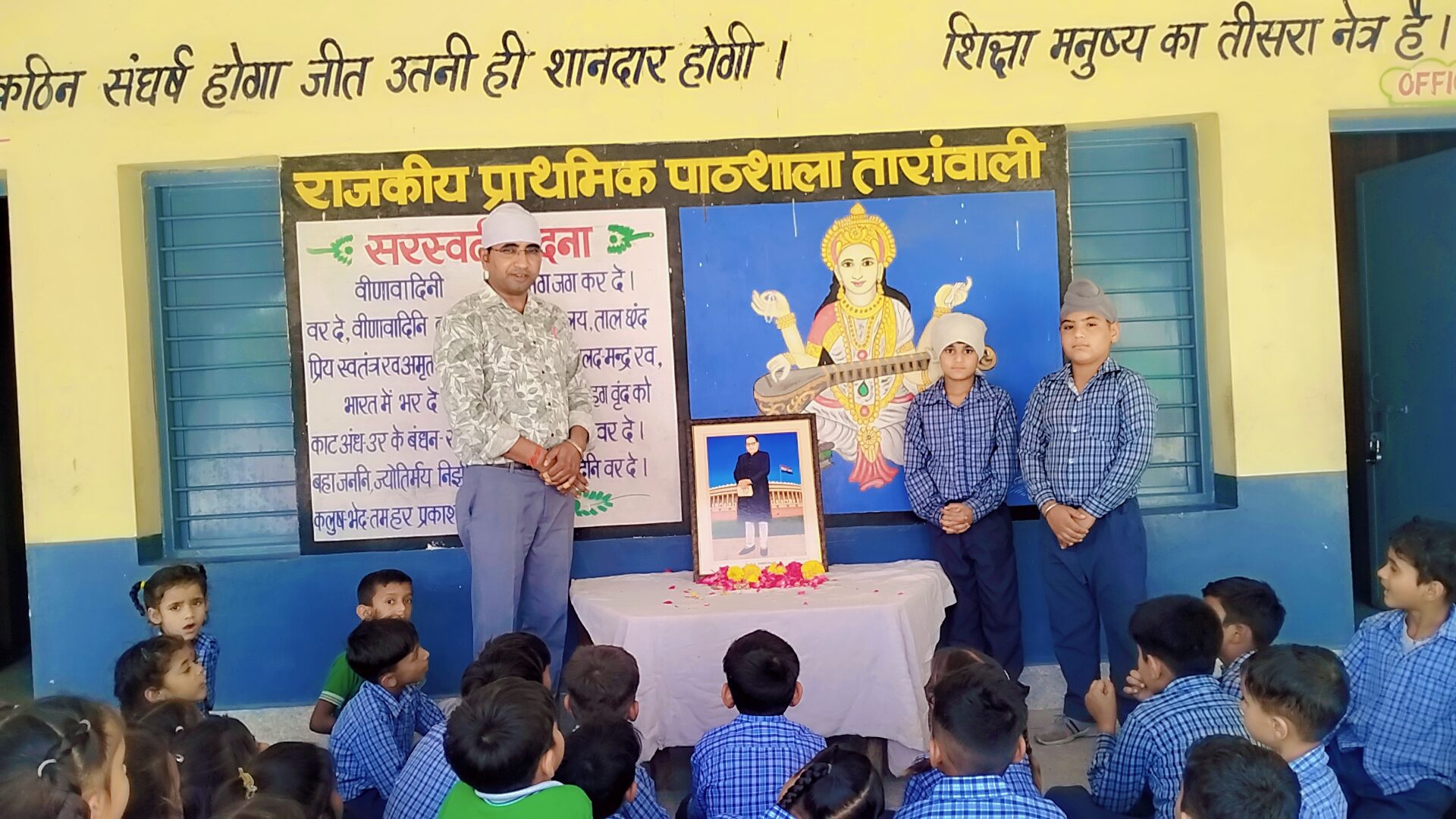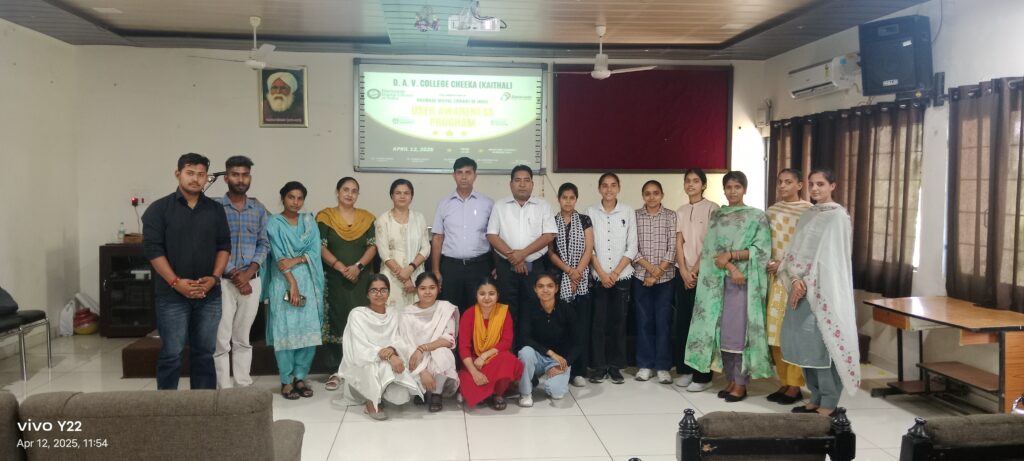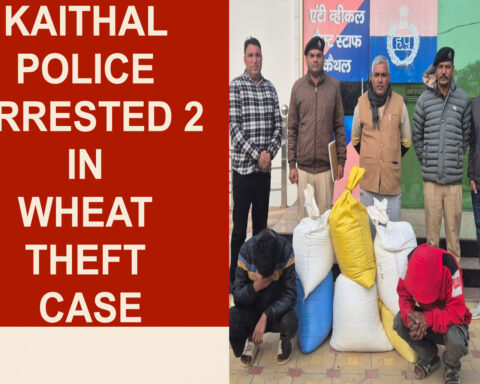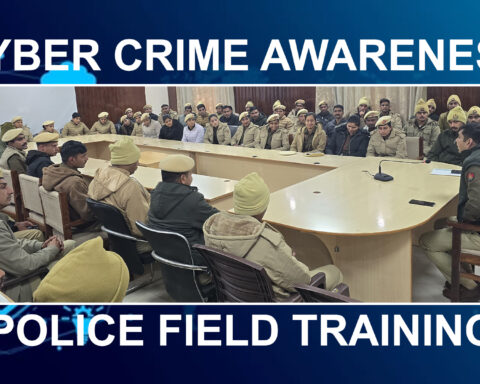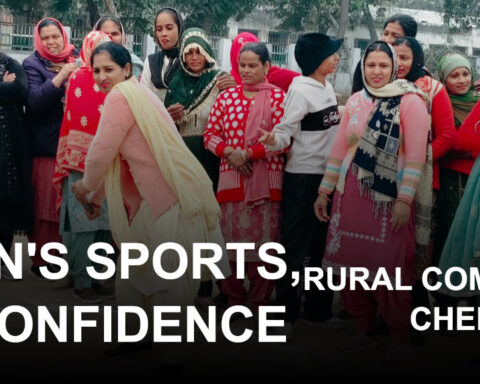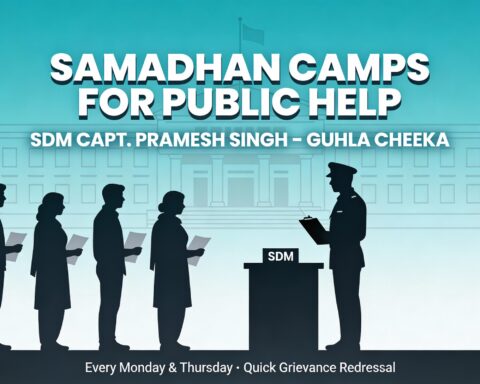Taranwali School Celebrates Ambedkar Jayanti and Baisakhi with Heartfelt Enthusiasm and UnityOn a warm spring morning in the village of Taranwali, nestled in the Guhla sub-division, the government primary school came alive with colors, voices, and stories of hope. Though it was not yet April 14th, the school chose to mark Dr. B.R. Ambedkar Jayanti and the Baisakhi festival a day early. This was because Monday, the official date of the celebration, would be a school holiday. The event was organized under the leadership of Head Teacher Lakhwinder Singh, with full support from faculty, students, and local community members.Honoring a Visionary: Dr. B.R. Ambedkar
The program began with a tribute to Dr. Bhimrao Ramji Ambedkar, the architect of India’s Constitution. The school courtyard echoed with the voices of children reciting facts and anecdotes about his life. Teacher Gurdeep Urlana took to the podium and addressed the students with sincerity and purpose. His words painted a vivid picture of Ambedkar’s struggles—from battling caste discrimination as a child to earning multiple doctorates and becoming the voice of the voiceless.
Dr. Ambedkar, he explained, was born on April 14, 1891, in Mhow Cantonment, Madhya Pradesh. Despite facing severe social discrimination, he pursued education with relentless determination. Eventually, he drafted the Indian Constitution, ensuring the principles of equality, liberty, and fraternity were enshrined for all citizens.
Inspiring the Young Minds
The children, dressed neatly in their school uniforms, listened with wide eyes and eager hearts. Many of them come from families that still face economic challenges. To them, Ambedkar’s story is not just history—it is a living source of strength and motivation.
“You are the future of India,” said Mr. Urlana. “Ambedkar worked so that you would never feel less than anyone else. Education is your biggest weapon—use it.” His message struck a chord. There was a pause—a moment of reflection that hung softly in the air.
Baisakhi: A Celebration of Harvest and Faith
After the tribute to Dr. Ambedkar, the focus shifted to Baisakhi, another significant day that holds deep cultural and religious meaning, especially in Punjab and Northern India. Mr. Lakhwinder Singh wished all students and teachers a joyful Baisakhi and explained its significance.
Baisakhi is celebrated on April 13 or 14 every year and marks the start of the harvest season. It is also the day when Guru Gobind Singh Ji, the tenth Sikh Guru, founded the Khalsa Panth in 1699. This event gave rise to the modern identity of the Sikh community and emphasized the values of courage, equality, and service.
Students learned that Baisakhi is celebrated with kirtans (spiritual songs), prayers, and langars (community meals) in Gurdwaras. Farmers thank God for a good harvest and pray for prosperity. The message is one of gratitude, unity, and respect for the divine.
A Beautiful Blend of Social and Cultural Values
The unique aspect of this celebration was how both Ambedkar Jayanti and Baisakhi were woven together into one program. It was a reminder that India’s strength lies in its diversity, and in the deep roots of both social justice and cultural heritage.
The school grounds were decorated with handmade posters, colorful banners, and drawings created by the children. Quotes from Ambedkar like “Educate, Agitate, Organize” were displayed beside vibrant depictions of Baisakhi processions. This visual blend represented both the intellectual and emotional richness of the day.
A Community Effort
The event wasn’t just a school initiative—it became a community affair. Present at the celebration were teachers Surjeet Ram, Paramjeet Kaur, Seeto Devi, and Shishpal, who helped coordinate the logistics. Parents also dropped by to observe and share in the spirit of the occasion. Many appreciated how the school not only focused on academics but also instilled values of empathy, social responsibility, and cultural pride.
One parent remarked, “My child comes home and talks about Ambedkar with pride. This kind of education changes lives.”
Why These Celebrations Matter
In an age of increasing distractions, cultural and social events in schools are more than just routine. They build identity, connect generations, and empower the youth. For many children, especially in rural areas like Taranwali, such days become turning points. They learn not just from books but from stories, actions, and emotions shared in their environment.
Dr. Ambedkar’s fight against inequality and Guru Gobind Singh’s stand for justice become real when explained in a classroom with passion and clarity. These are not just past events—they are blueprints for a better future.
The Role of Teachers in Shaping Society
It was evident throughout the event how committed the teachers are—not just to lessons, but to building character. Whether it was Mr. Urlana’s emotional speech or Mr. Singh’s patient explanation of Baisakhi rituals, the educators took time to ensure the children truly understood and felt connected to what they were learning.
They encouraged students to ask questions, participate in discussions, and even share their thoughts. Some students read short poems, while others performed songs that spoke of unity, courage, and learning.
Looking Ahead: Carrying the Message Forward
As the program concluded, every child received sweets and handmade bookmarks with inspiring quotes from both Ambedkar and Sikh Gurus. The school announced a follow-up activity—a poster-making competition on “Equality and Culture in Modern India.”
Teachers also reminded students to share what they learned with their families. The idea was simple: change begins not just with understanding, but with action. If each student speaks of equality, celebrates culture, and respects all communities, a wave of change can ripple through generations.
A Morning to Remember
The Taranwali celebration was not grand in scale, but it was grand in impact. It brought together history, culture, emotion, and education in one space. It showed how a small school in a quiet village could light a torch of awareness and unity.
The event served as a powerful example of how schools, when guided with dedication and heart, can become centers of transformation. It wasn’t just a celebration—it was a call to live the values we often read about.
As the students walked home with bright eyes and thoughtful smiles, the spirit of Ambedkar and Baisakhi walked with them—quietly shaping the future of a more equal and united India.
Let me know if you’d like to turn this into a printable school newsletter, social media post, or infographic.


